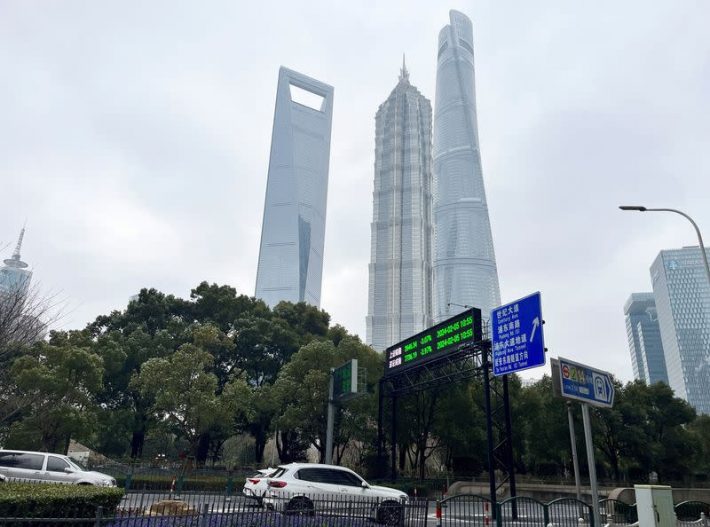Chinese money is pouring into funds invested in offshore assets amid the country’s economic slowdown and low confidence about domestic markets.
Sales of funds issued under the Qualified Domestic Institutional Investor (QDII) programme – a key outbound investment channel that allows Chinese to buy overseas securities under Beijing’s strict capital controls – soared in January.
QDII fund units jumped 50% year-on-year at the start of 2024 to a record high, hitting outbound investment limits and complicating Beijing’s efforts to revive domestic markets and stabilise the yuan.
ALSO SEE: PM Pledges to Revitalize China’s Economy, Aims at 5% Growth
At the same time money going into domestic equity mutual funds dropped 35%, data from the Asset Management Association of China shows. Assets under management for QDII funds were up 19% year-on-year.
Exchange-traded funds (ETFs) tracking Nikkei 225 and Nasdaq-listed stocks flagged price premium risks in recent weeks as buyers bid well above the value of the underlying assets to grab a share.
The outbound scramble illustrates the pressure on China’s capital account and currency and the challenges in rebuilding domestic investors confidence in their home market.
Chinese stocks are wallowing near a five-year low while yields on the country’s 30-year treasury bonds have plumbed record lows.
“We feel a pressing need from our wealthy clients to diversify asset allocation,” said Le Rong, founding partner of Shanghai-based FR Harvest Asset Management, which helps clients invest via QDII. “After 20 years of high growth and high returns, the Chinese economy faces a slowdown in the foreseeable future,” he said.
Managers are also struggling to keep up and are turning away prospective investors or searching for partners and other ways around limits.
The QDII scheme is capped by a quota, or limit on outbound investment, set by China’s State Administration of Foreign Exchange (SAFE).
Demand for QDII funds ‘has gone insane’
No new quotas have been granted since July, leaving the cumulative approved quota at $165.5 billion, according to official data.
Last week, ChinaAMC capped investors daily subscription into its Huaxia Global Technology Pioneer Hybrid Securities Investment Fund, which lists US tech giants among its top holdings, at 2,000 yuan ($277.84).
And Manulife Fund Management has set a daily maximum purchase of 300 yuan for its India Opportunity Stock Investment Fund.
Another QDII product sold in China, which is putting money into a Blackrock UK hedge fund, has seen a five-fold surge in fundraising this year, drawing nearly $12 million against the $2.1 million it raised in 2023, according to two sources familiar with the matter but not authorised to speak publicly.
“Local investors’ demand for QDII funds has gone insane this year,” one of the sources said.
The product paused new subscriptions in March, said China Resources Trust, which jointly launched the product with Blackrock. A Blackrock spokesperson did not respond to requests for comment.
Standard Chartered also recently stopped its Chinese clients from making new investments in QDII products for “commercial reasons”.
Zheng Peng, a QDII fund portfolio Manager at China Asset Management Co expects the trend to persist, with a gap of almost 190 basis points between 10-year US and Chinese government bond yields driving current demand.
- Reuters with additional editing by Jim Pollard
ALSO SEE:
Foreign Direct Investment in China Falls 80% to Three-Decade Low
China Sees Biggest Fall in Consumer Prices Since 2009
China’s Deflation And Weak Economy Point to Another Bumpy Year
China Markets Hit 6-Year Lows, Nikkei Follows Wall St Rally
China Asks Local Governments Not to Use Tech Funds to Pay Debt
























